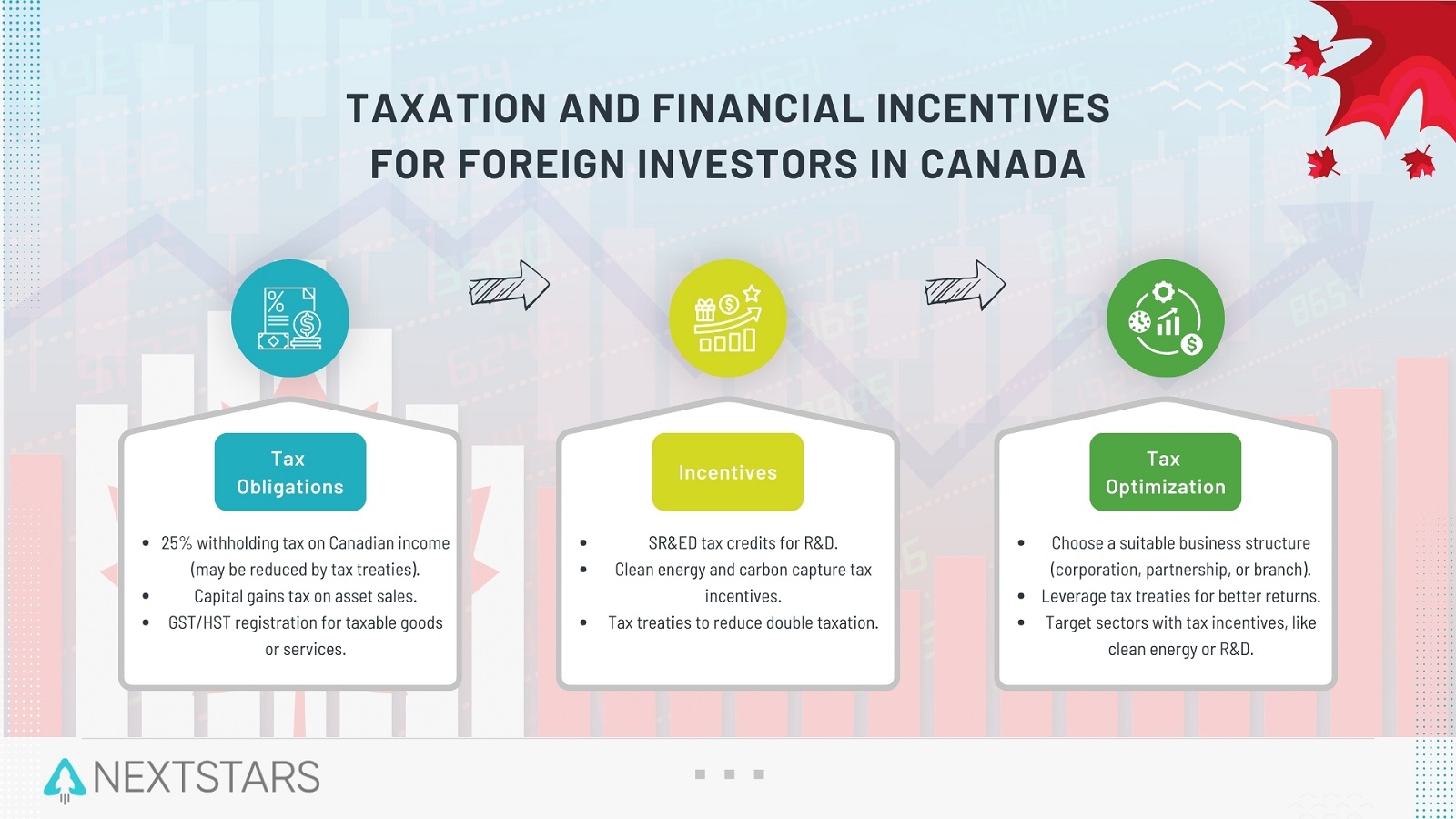Navigating Canada’s taxation landscape is crucial for foreign entrepreneurs and investors to ensure compliance and optimize returns. Here’s an overview of key considerations:
1. What Tax Obligations Do I Need to Consider as a Foreign Investor?
- Income Tax: Non-residents earning income from Canadian sources, such as business profits or rental income, are subject to Canadian income tax. The general withholding tax rate is 25%, though tax treaties may reduce this rate. Government of Canada
- Capital Gains Tax: Non-residents disposing of taxable Canadian property, including real estate and certain business assets, may be liable for capital gains tax. It’s essential to understand the specific tax implications of such dispositions. Government of Canada
- Goods and Services Tax (GST)/Harmonized Sales Tax (HST): If you’re conducting business in Canada, you may need to register for GST/HST and charge it on taxable supplies of goods and services. Compliance with these requirements is vital to avoid penalties. Government of Canada
2. Are There Any Tax Benefits or Incentives for Foreign Investors in Canada?
Yes, Canada offers several incentives to attract foreign investment:
- Scientific Research and Experimental Development (SR&ED) Tax Incentive Program: This program provides tax credits to businesses conducting R&D in Canada, including foreign-owned entities. Eligible expenditures can yield investment tax credits, which may be refundable or non-refundable depending on the business structure. Government of Canada
- Clean Economy Investment Tax Credits: As part of its commitment to a sustainable economy, Canada has introduced tax credits for investments in clean technologies, such as carbon capture and renewable energy projects. These incentives aim to promote environmental innovation and attract foreign capital. Government of Canada
- Tax Treaties: Canada has tax treaties with numerous countries to prevent double taxation and reduce withholding tax rates on various types of income, facilitating smoother cross-border investments. Government of Canada
3. How Can I Structure My Investment to Optimize Taxation?
Strategic planning can enhance tax efficiency:
- Select an Appropriate Business Structure: Choosing between a corporation, partnership, or branch operation can significantly impact your tax obligations. Incorporation may offer benefits like limited liability and access to specific tax credits. Government of Canada
- Leverage Tax Treaties: Utilizing provisions in tax treaties can reduce withholding taxes and mitigate double taxation, enhancing net returns on your investments. Government of Canada
- Invest in Tax-Advantaged Sectors: Targeting industries with specific tax incentives, such as clean energy or R&D, can provide additional tax relief and support. Government of Canada
- Consult Tax Professionals: Engaging with Canadian tax advisors ensures compliance with local laws and helps identify opportunities for tax optimization tailored to your investment strategy.
Understanding these aspects of Canada’s tax system enables foreign investors to make informed decisions and effectively manage their investments within the Canadian market.





